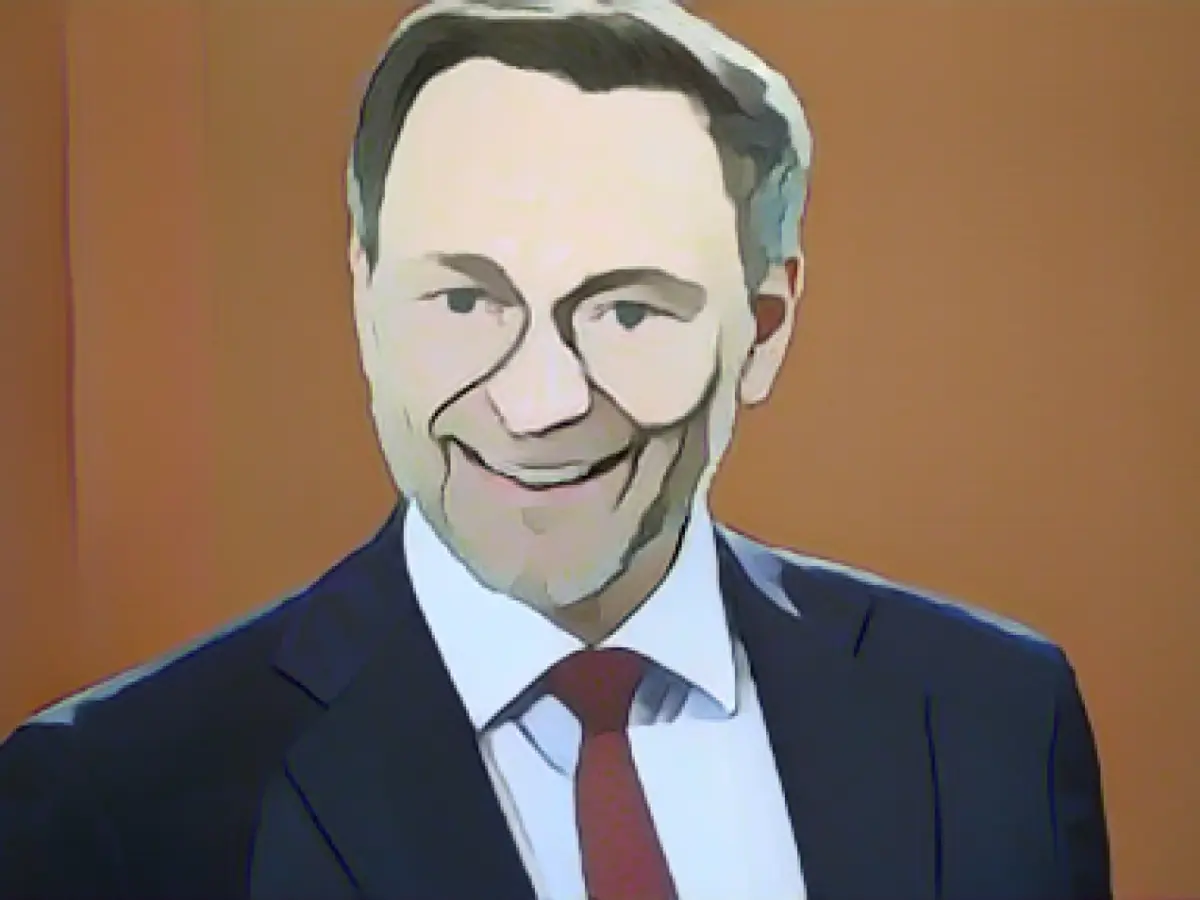Lindner Plans to Tweak Debt Brake in the Near Future
Lindner, the head honcho of the FDP, intends to tinker with the debt brake in the coming year, focusing on adjusting the economic component's calculation in accordance with present-day economic research findings. This modification will presumably alter the range of fluctuation, as Lindner elaborated. Despite this change, over an extended period, it won't significantly raise the debt ceiling.
The economic component stipulates that borrowing new funds during tough economic times is generally permissible, though such debts must be repaid in more prosperous periods. The debt allowance is determined using unique mathematical formulas.
Notably, Lindner asserted no amendments to the Basic Law or the need for a two-thirds majority in the Bundestag and Bundesrat to alter the economic component. Instead, modifications to the debt brake's implementing laws would suffice, requiring only the approval of the traffic light coalition — the coalition controlling the majority.
Last Friday, the Bundestag suspended the debt brake for 2023 retrospectively - the fourth consecutive suspension. The traffic light coalition justified the measure in light of Ukraine's conflict's effect on energy markets and the Ahr valley flood. However, the debt brake suspension emerged directly as a consequence of the German Federal Constitutional Court's November budget ruling, subsidizing the 2023 budget with additional funds.
The Karlsruhe judgment initiated prolonged negotiations within the coalition government over the 2024 budget, with a 17 billion euro funding deficit to be accounted for. After a compromise on Wednesday, the gap will be closed through a combination of measures including savings, tax increases, and subsidy cuts.
While the debt brake will be upheld as much as possible for the coming year, Federal Chancellor Olaf Scholz hasn't ruled out another suspension in case of a deterioration in Ukraine's military or financial situation.
First enacted in 2011, the debt brake is incorporated into the Basic Law, urging federal and state governments to balance their budgets without loans, yet permitting suspensions due to natural disasters or extraordinary emergencies beyond government control.
During the interview, Lindner expressed a willingness to rescind the agricultural diesel subsidy removal, a contentious point within the coalition, and replace it with alternative cuts. He emphasized that he doesn't support the notion of burdening agricultural businesses. The topic will subsequently be discussed within the government and coalition, with Lindner expressing openness to alternative solutions.
The agricultural diesel subsidy repeal, a stipulation of the traffic light coalition budget agreement, has stirred outrage among affected parties. The German Farmers' Association has announced a protest at the Brandenburg Gate in Berlin on Monday.
Criticizing the coalition, deputy leader of the CDU parliamentary group, Jens Spahn, accused it of burdening farmers and lower-income individuals with its draft budget. Spahn argued that this tactic would increase general unrest in the country further, potentially lowering Germany's growth by half a percent in the coming year.
Spahn predicted that the ensuing “budget chaos” will be detrimental to the German economy, particularly during the initial quarter of 2024.
Related Content:
- With the intention of partially reforming the debt brake, Christian Lindner, FDP chairman, has proposed altering the economic component calculation based on the latest research in economic studies.
- In the absence of amendments necessitating a two-thirds majority in the Bundestag and Bundesrat, the Federal Council may adjust the debt brake implementing laws.
- Retroactively suspended for 2023, the debt brake has been suspended for the fourth time in succession due to the Ukraine conflict and the Ahr valley flood consequences.
- Lindner has also expressed an openness to replacing the farmer diesel subsidy elimination with alternative cuts, acknowledging his sympathies toward the agricultural sector.
- Spahn, a CDU deputy leader, has accused the coalition of unfairly burdening farmers and small- to medium-income individuals with their budget proposal, which contributes to general discontent in the country.
- Scholz, German Chancellor, has not excluded the possibility of renewed debt brake suspension should Ukraine's military or financial condition worsen significantly.
Source:
Additional Information:
The proposed reforms addressed by various experts and political analysts around the debt brake include:
- Linking New Borrowing to Debt-to-GDP Ratio: This involves permitting more new borrowing as the debt level rises, sparking an increase in the debt-to-GDP ratio. By doing so, governments can invest in infrastructure, digitalization, and defense with more financial flexibility[1].
- Allowing Federal States to Borrow: Offering borrowing rights to Germany's Federal States (Länder) would help address their considerable investment needs in these areas without compromising the debt brake rules[1].
- Creating a Golden Rule for Defense Spending: Establishing a golden rule for defense expenditures would exempt crucial defense-related investments from debt brake restrictions. This would allow for a greater discretionary budget for defense purposes, enabling Germany to invest in its national security[1].
These reforms could shake up Germany's economic strategy and galvanize substantial investment in areas crucial to supporting private enterprise and promoting productivity gains. Nevertheless, the precise impact will depend on the specifics of the reform implementations.
Note: The input refers to the German debt brake, a mechanism to regulate and control the government's public debt and spending. The debt brake was first enacted in 2011, with the objective of ensuring fiscal responsibility and responsible public debt management in Germany. Since then, it has undergone various modifications and in some instances been suspended, most notably during natural disasters, financial crises, and extraordinary emergencies. The current debate surrounding the debt brake relates to the potential reform of the economic component, which will govern how new borrowing is approached in times of economic hardship. The economic component is a crucial component of the debt brake, as it determines when, and under what conditions, governments are allowed to incur new debt. The mentioned reforms aim to provide more flexibility for investment and stimulate the German economy, often with a focus on infrastructure, digitalization, and defense. However, policymakers also seek to maintain a balance between fiscal discipline and economic growth.








